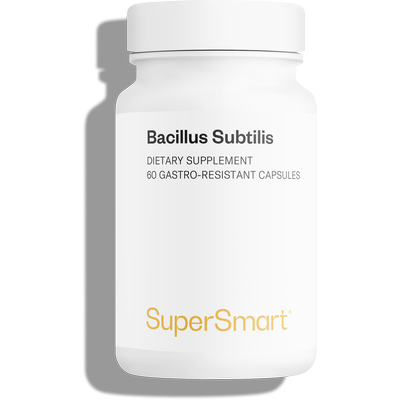07-08-2019
Dysbiosis: a risk factor for auto-immune disease?
 Dysbiosis is a term for microbial imbalance, usually of the intestinal microbiota or gut flora. This microbiota helps the body function properly, supporting the body’s digestive health and defences. Unfortunately, the equilibrium of this microbiota is subject on a daily basis to disruption by pathogens. A significant influx of pathogenic germs can cause dysbiosis contributing to the onset of health problems including auto-immune diseases.
Dysbiosis is a term for microbial imbalance, usually of the intestinal microbiota or gut flora. This microbiota helps the body function properly, supporting the body’s digestive health and defences. Unfortunately, the equilibrium of this microbiota is subject on a daily basis to disruption by pathogens. A significant influx of pathogenic germs can cause dysbiosis contributing to the onset of health problems including auto-immune diseases.
Dysbiosis present in auto-immune disease
Studies carried out over the last few years have expanded our understanding of the importance of intestinal microbiota. Research is now being conducted to evaluate the risks posed when our gut flora becomes unbalanced, known as dysbiosis. One study, published in 2017 in the journal BMJ Open Gastroenterology1, demonstrated the presence of dysbiosis in individuals with an auto-immune disease called systemic sclerosis, a disorder characterised by changes to the arterioles, micro-vessels and connective tissue. As it develops, the disease can gradually cause a loss of function in the organs and tissues affected. Though generally rare, it is prevalent in certain parts of the world, particularly North America and Australia.
Effect of dysbiosis on systemic scleroderma patients
Comparison of three patient groups
In this study, researchers examined gut microflora in three groups of people:
-
- A control group of adults with no symptoms of auto-immune disease;
- A group of systemic sclerosis patients from Los Angeles, USA;
- A group of systemic sclerosis patients from Oslo, Norway.
Dysbiosis implicated in auto-immune disease
The researchers observed significant differences in the faecal microbiota of the three groups. Compared with controls, the microbiota of the two groups of systemic sclerosis patients showed:
-
- lower levels of non-pathogenic bacteria such as the Bacteroid, Faecalibacterium and Clostridium species
- higher levels of pathogenic bacteria.
How to combat dysbiosis
Despite the identification of significant dysbiosis in the systemic sclerosis patients, gastrointestinal symptoms were found to be less severe in those patients whose microbiota contained more non-pathogenic bacteria. This reinforces the benefits of probiotics, microorganisms known for maintaining or restoring balance to gut flora.
According to this study, imbalances in gut flora – dysbiosis - may be involved in the development of certain auto-immune diseases; they may even be a risk factor for some conditions. This research adds to existing evidence of the effects of intestinal microbiota on the body’s defences. It thus appears vital to maintain gut flora balance in order to boost our immune systems.Probiotics are available in supplement form to help us, including strains known for their immune-stimulant activity such as Bacillus subtilis.
> Source :
1. Elizabeth R Volkmann et al., Systemic sclerosis is associated with specific alterations in gastrointestinal microbiota in two independent cohorts, BMJ Open Gastro 2017.
Order the nutrient mentioned in this article

Probiotic bacteria strain with confirmed immunostimulant capacity
www.supersmart.comFurther reading
24-06-2019
Better known as PEA, palmitoylethanolamide is a natural and powerful active principle discovered in 1957. Since then, it has consistently been the subject of new...
Read more19-09-2016
The results of clinical research published over the last fifteen years highlight the many beneficial effects of probiotics. They appear to have both preventive and...
Read more14-03-2017
Allergies affect between 30% and 40% of the world’s population. They have multiple causes and take various forms such as food allergies, allergic rhinitis, asthma,...
Read more© 1997-2025 Fondation pour le Libre Choix
All rights reserved
All rights reserved
Free
Thank you for visiting our site. Before you go
REGISTER WITHClub SuperSmart
And take advantage
of exclusive benefits:
of exclusive benefits:
- Free: our weekly science-based newsletter "Nutranews"
- Special offers for club members only

















